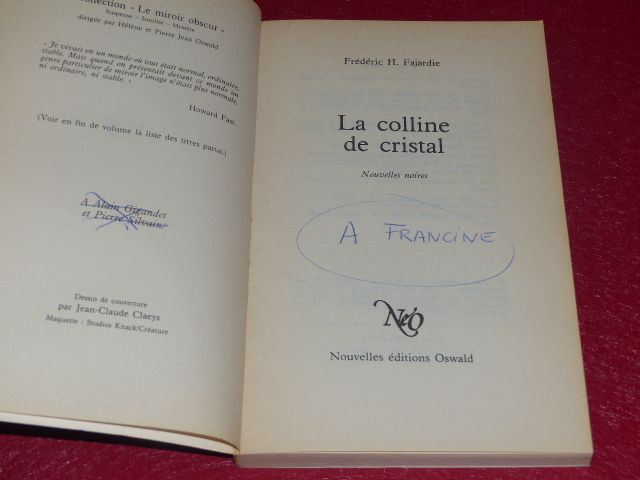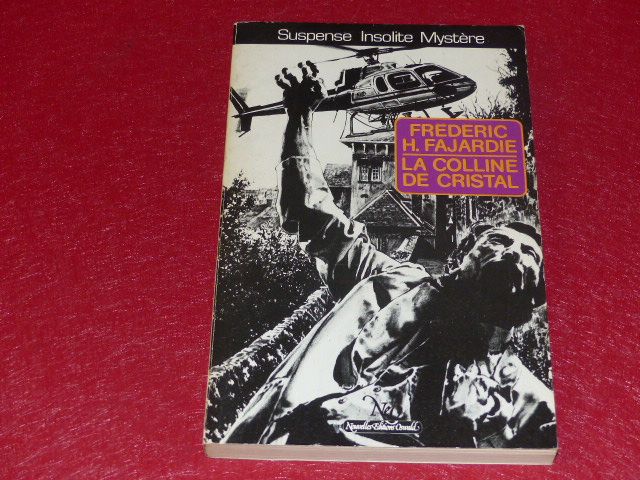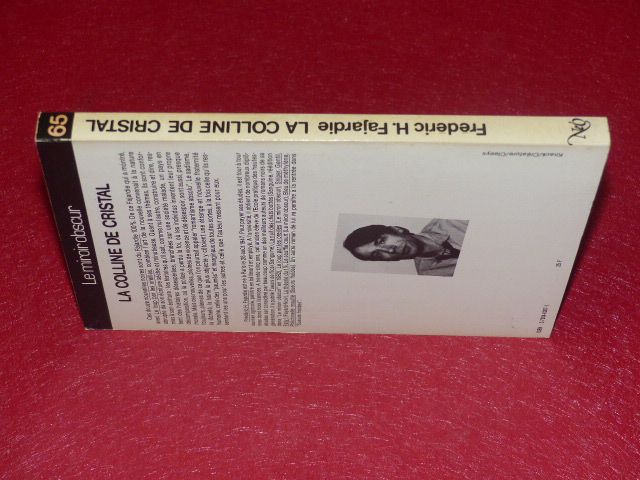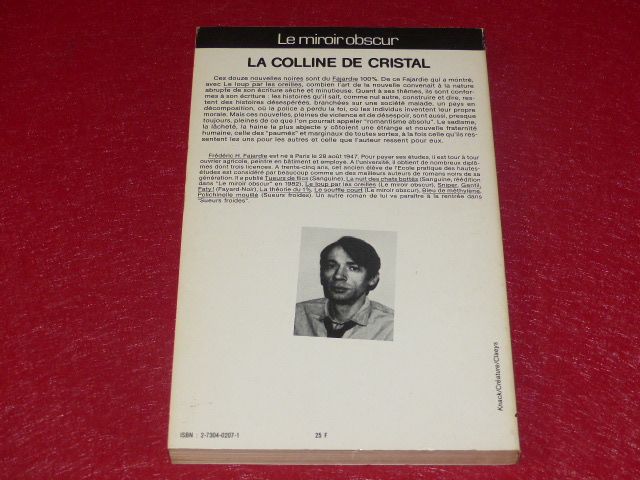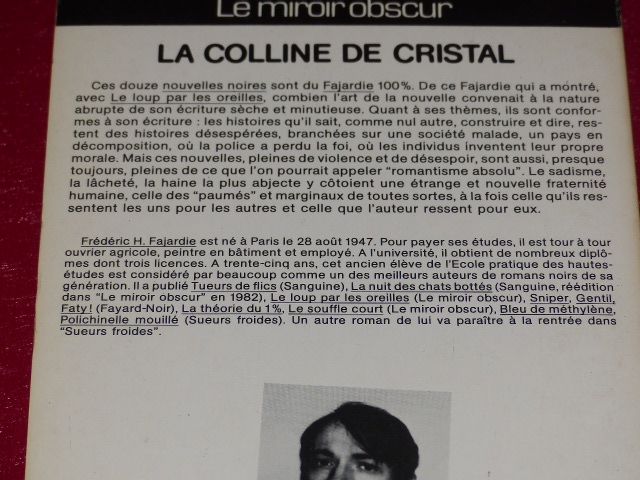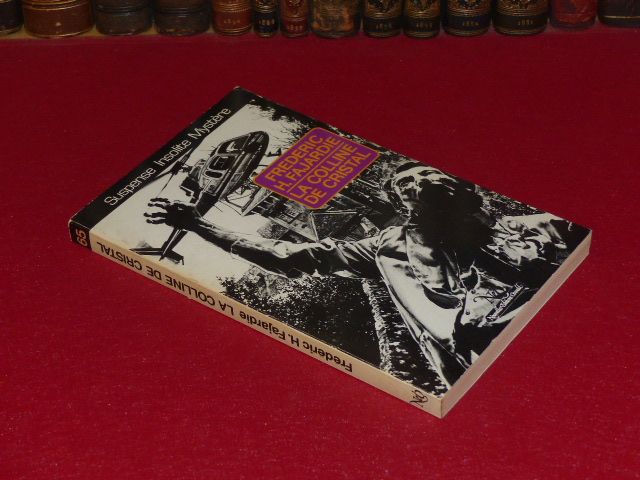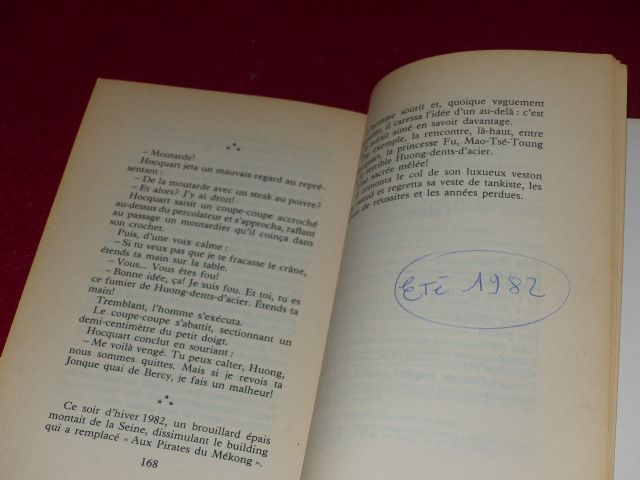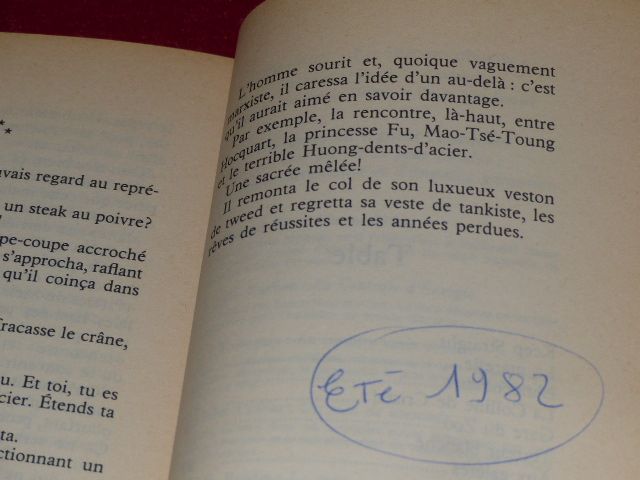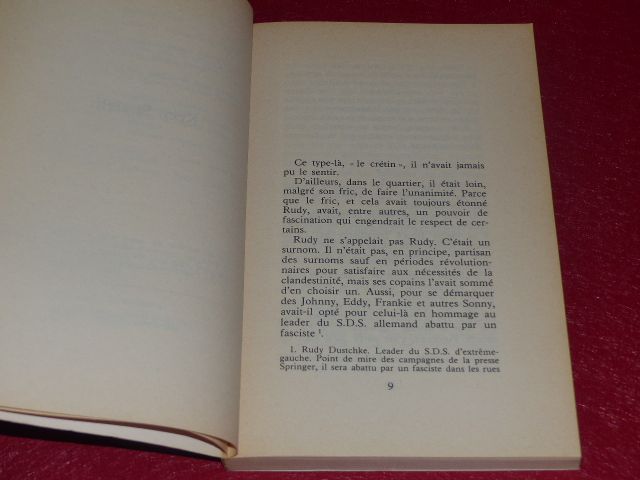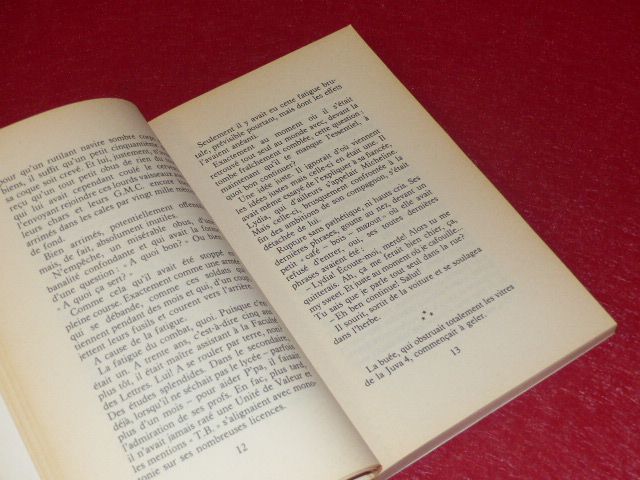To follow on ebay...
at auction and in my shop "AmidesLivres"
a Very important set of books (some with dedications) of Science fiction, Fantasy,
detective literature, Various magazines ancient or recent, Poetry, Literature,
from the Publishers Library
Helen and Pierre-Jean
OSWALD
With of course a very large number of titles from the various collections of the "Neo" editions,
including the rarest...
-
[POLICE LITERATURE - AUTHOR DEDICATIONS]
Fajardie (Frédéric H.)
1947-2008
Frédéric H. Fajardie, pen name of Ronald Moreau, born August 28, 1947, in Paris,
and died in the same city on May 1, 2008, is a French writer and screenwriter, author of noir and detective novels.
Biography
He grew up in the bookstore of his bookseller and libertarian father, rue de Tolbiac in the 13th arrondissement of Paris,
where he read many novels and short stories. From the age of 16, Marxism became the ideological landmark of his life. In 1968, won over to left-wing ideas, he campaigned for the Gauche prolétarienne, worked in various odd jobs and, from May 1968, wanted to become the first activist “committed” to writing noir novels.
He publishes his first black novel cop killers, in August 1979. In this very free adaptation of the Oresteia, a myth from ancient Greece, a commissioner is in charge of an investigation which should allow him "to arrest killers who like to cut up his colleagues". This first novel is part of the new literary genre of neo-polar.
He was hailed, from that time, by the critics Max-Pol Fouchet and Alain Dugrand.
From the mid-1980s, he wrote screenplays for the cinema and at the same time began to publish more classic novels, while continuing his work in the noir novel.
Averse to labels and ghettos, he did not appreciate Mitterrand's socialism, against which he wrote, in 1993, Chronicle of a political liquidation.
His work
For Fajardie, thrillers and thrillers are the best ways to explore the upside and downsides of contemporary society. In his work, where the chivalrous spirit of his characters is opposed to contemporary mediocrity, his political leftism is combined with the values of honor, fidelity and often fraternization beyond ideological or historical oppositions.
His works, in the versions published by NÉO editions (later taken over by La Table ronde), have covers designed by Jean-Claude Claeys. They marvelously restore the dark urban atmosphere, the violence and the disillusion that mingle in Fajardie's work.
-
Copy bearing two handwritten inscriptions in the pen of the author's hand,
the first on the title page: "A Francine" in capitals, mention surrounded by a circle in pen and opposite the names of the two initial dedicatees crossed out, and the second at the end of the volume: "summer 1982"
-
“I dedicated close to 50 books to Francine (in the first edition, I happened to put the name of a friend,
but he knew that the work would revert to Francine in the event of a reissue).
To have fifty books dedicated in fact - it seems - the Frenchwoman who has seen herself the most spoiled on this chapter throughout the 20th century and perhaps even of all time.
This will perhaps, at least I hope, compensate for the diamonds that I did not offer him... " F H. Fajardie.
Francine
In 1974 will take place the decisive meeting for his vocation as a writer, with Francine,
a JEUNE central administration attaché at the Ministry of Justice who would become his wife and the first of his readers; Francine to whom will henceforth be dedicated all his books (with one or two exceptions) and who will appear, logically, in his novels as the wife of his alter ego, Commissar Padovani:
“(...) And you, do you have a girlfriend?
- What the fuck do you care?
- Then you won't know the rest!
- Well, that's okay. I have a girlfriend who is attached to the Ministry of Justice.
(...)
- Oops! Come on, smile! Your girlfriend is waiting for you! What's her name actually?
- Francine, commissioner Ouap! Her name is Francine, I replied, annoyed.
He pretended not to have perceived my irritation:
- Francine? That's cute! She sure is pretty!
- She is, Commissioner Ouap. »
"Without her, he admits, I probably wouldn't have written so much..."
-
The Crystal Hill
black news
-
In-8, 168pp., paperback,
cover illustrated by Jean-Claude CLAEYS
Paris, NéO, 1983 (June)
Collection "The Dark Mirror".-65
5th collection of the author published
at New Oswald Editions
Original edition
(no large papers)
Edition of 5000 copies
(as specified at the end of the volume)
First Printing
Good condition
minor usual marks or scuffs on cover. or back
Good interior condition, yellowed paper as always, clean,
without freckles
see visuals...
-
